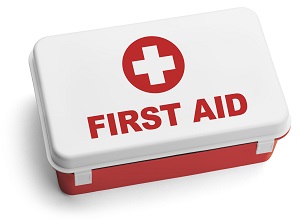PREPARING
Shelter first and foremost because the environment will kill you in hours if the weather is severe.
Dehydration will kill you in a day or two.
Starvation takes weeks.
This is why shelter, water, and food, are prioritized in this order.
You will freeze before you dehydrate, and you will dehydrate before you starve.
From a violent storm to a peaceful "stay-at-home" order, an emergency can take on a variety of forms, and strike without any warning.
In largescale emergencies, it is not unheard of to be waiting a week or more for emergency services to arrive. If you found yourself in this situation, your immediate needs will be better met if you have considered them in advance. Prepare yourself now!
Shelter
Your number 1 priority
Generally speaking it is accepted that your most immediate requirements, in the order of importance, will be Shelter, Water, & Food.
Based on the emergency, you may be sheltering at home, at work, or at a mass care center.
If the emergency is widespread enough and transportation is unavailable, you may be responsible for providing a makeshift shelter for yourself and your family.
Options may include a tent, an RV, a camper, a van, or the materials and tools with which to build a lean to or other shelter.
Blankets, sleeping bags, and additional warm clothing are good to have on hand as well.
Flashlights and fire making materials (or the tools to obtain wood for a fire) would be something to consider as part of your shelter preparations.
Walk outside and stand in front of your home and ask yourself, if I had to stay out here, what would I want available to me?
More guidance can be found here on Ready.gov
Water
Your number 2 priority
Water is easy to store and lasts a long time.
In addition to storing water, water filtration tools are available.
Be sure to research, know, and understand the safe use and product reliability of any water filtration system you decide to rely on.
A good rule of thumb is one gallon of water per person, per day.
Food
Your number 3 priority
Food storage may be a problem if there is no electricity.
Non-perishables are always a good idea.
While things like sugar have a long shelf life and will sustain life, there are other good options.
Nuts, canned goods, and other enjoyable foods are viable options.
More guidance can be found here on FEMA food & water
Calculate your requirements
WhatIfColorado.com has an excellent online calculator that will take your inputs on the number of adults, kids, and pets you have, and return a 3-day supply list of what you will need to have on hand.
Check out the Calculator here!

Check out these 10 First Aid must-knows!







